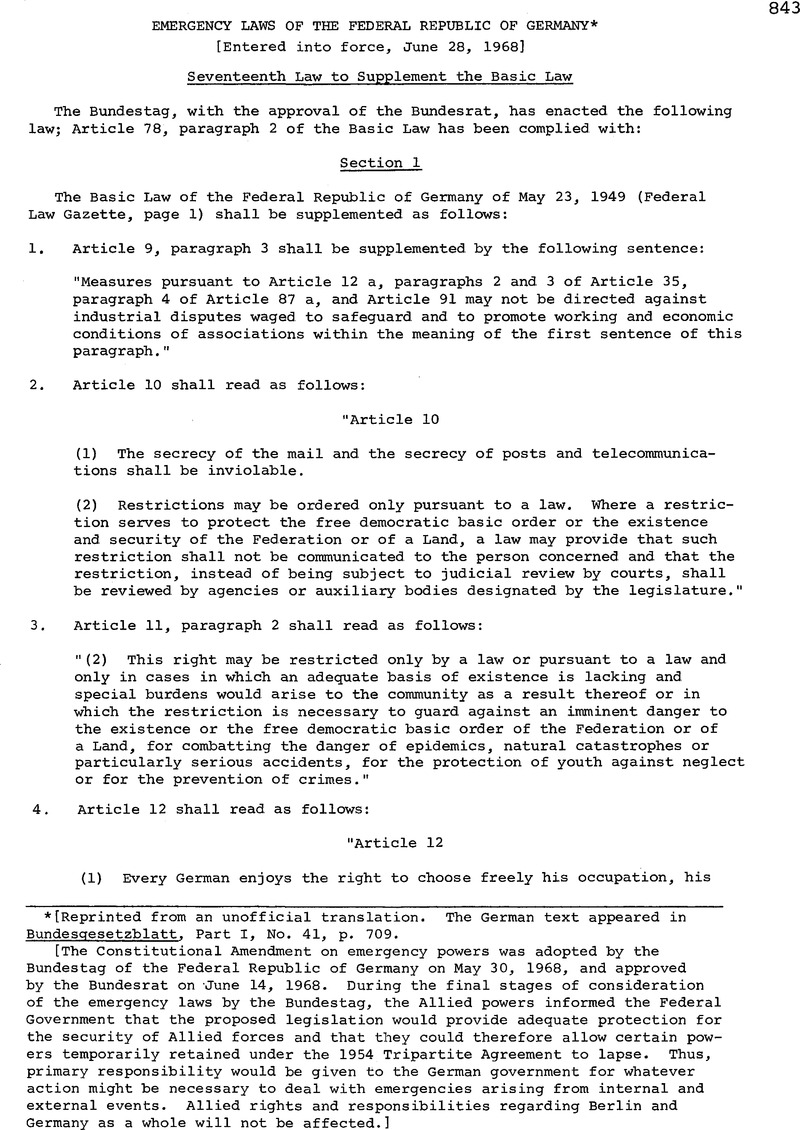No CrossRef data available.
Article contents
Emergency Laws of the Federal Republic of Germany*
Published online by Cambridge University Press: 20 March 2017
Abstract

- Type
- Legislation and Regulations
- Information
- Copyright
- Copyright © American Society of International Law 1969
Footnotes
[Reprinted from an unofficial translation. The German text appeared in Bundesgesetzblatt, Part I, No. 41, p. 709. [The Constitutional Amendment on emergency powers was adopted by the Bundestag of the Federal Republic of Germany on May 30, 1968, and approved by the Bundesrat on June 14, 1968. During the final stages of consideration of the emergency laws by the Bundestag, the Allied powers informed the Federal Government that the proposed legislation would provide adequate protection for the security of Allied forces and that they could therefore allow certain powers temporarily retained under the 1954 Tripartite Agreement to lapse. Thus, primary responsibility would be given to the German government for whatever action might be necessary to deal with emergencies arising from internal and external events. Allied rights and responsibilities regarding Berlin and Germany as a whole will not be affected.]
References
* [Reprinted from an unofficial translation. The German text appeared in Bundesgesetzblatt, Part I, No. 41, p. 709. [The Constitutional Amendment on emergency powers was adopted by the Bundestag of the Federal Republic of Germany on May 30, 1968, and approved by the Bundesrat on June 14, 1968. During the final stages of consideration of the emergency laws by the Bundestag, the Allied powers informed the Federal Government that the proposed legislation would provide adequate protection for the security of Allied forces and that they could therefore allow certain powers temporarily retained under the 1954 Tripartite Agreement to lapse. Thus, primary responsibility would be given to the German government for whatever action might be necessary to deal with emergencies arising from internal and external events. Allied rights and responsibilities regarding Berlin and Germany as a whole will not be affected.]




